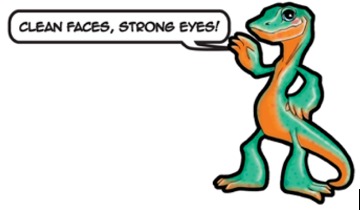

Eliminating trachoma and other infections in remote Indigenous communities.
University Of Melbourne
$1,258
Worth of brand new
goods received (RRP)
goods received (RRP)
$0
Total paid
56
Lives Impacted
November 2021
Trachoma is spread by infected eye and nose secretions that are easily shared among young children. After repeated infections over time (up to 150) this damages the eye leading to blindness. Hygiene practices (especially clean faces and hands in children) and functional bathrooms are both essential to eliminate trachoma. These two elements are also the key to helping reduce other infections common in remote Indigenous communities where houses are still overcrowded and in poor condition.
Indigenous Eye Health (IEH) at the University of Melbourne supports trachoma programs, communities and other stakeholders with resources, community engagement and advocacy.
In 2020-2021 EH increased community engagement activities with free Milpa’s Six Steps to Stop Germs resources and advocating for functional bathroom availability.
In the second year of the COVID-19 pandemic, there is renewed interest by remote services and communities to discuss the importance of hygiene and home cleaning.
Lesley's Home Cleaning Tips sessions are a popular and practical way to discuss home, health, and family wellbeing in remote Aboriginal communities.
The high-grade KOH microfibre cloths from Good360 are just right for home and hygiene education activities where local women make learn how to make inexpensive, non-toxic cleaning products. Thank you Good360 and KOH
Indigenous Eye Health (IEH) at the University of Melbourne supports trachoma programs, communities and other stakeholders with resources, community engagement and advocacy.
In 2020-2021 EH increased community engagement activities with free Milpa’s Six Steps to Stop Germs resources and advocating for functional bathroom availability.
In the second year of the COVID-19 pandemic, there is renewed interest by remote services and communities to discuss the importance of hygiene and home cleaning.
Lesley's Home Cleaning Tips sessions are a popular and practical way to discuss home, health, and family wellbeing in remote Aboriginal communities.
The high-grade KOH microfibre cloths from Good360 are just right for home and hygiene education activities where local women make learn how to make inexpensive, non-toxic cleaning products. Thank you Good360 and KOH
About Our Charity
Indigenous Eye Health's works to Close the Gap for Vision with Indigenous Australians. Trachoma is a preventable, infectious cause of blindness. IEH supports trachoma elimination in Australia with advocacy, health promotion, resources and support in
Causes we support
Community Improvement & Economic Development
Family
Aboriginal or TSI
Donors


